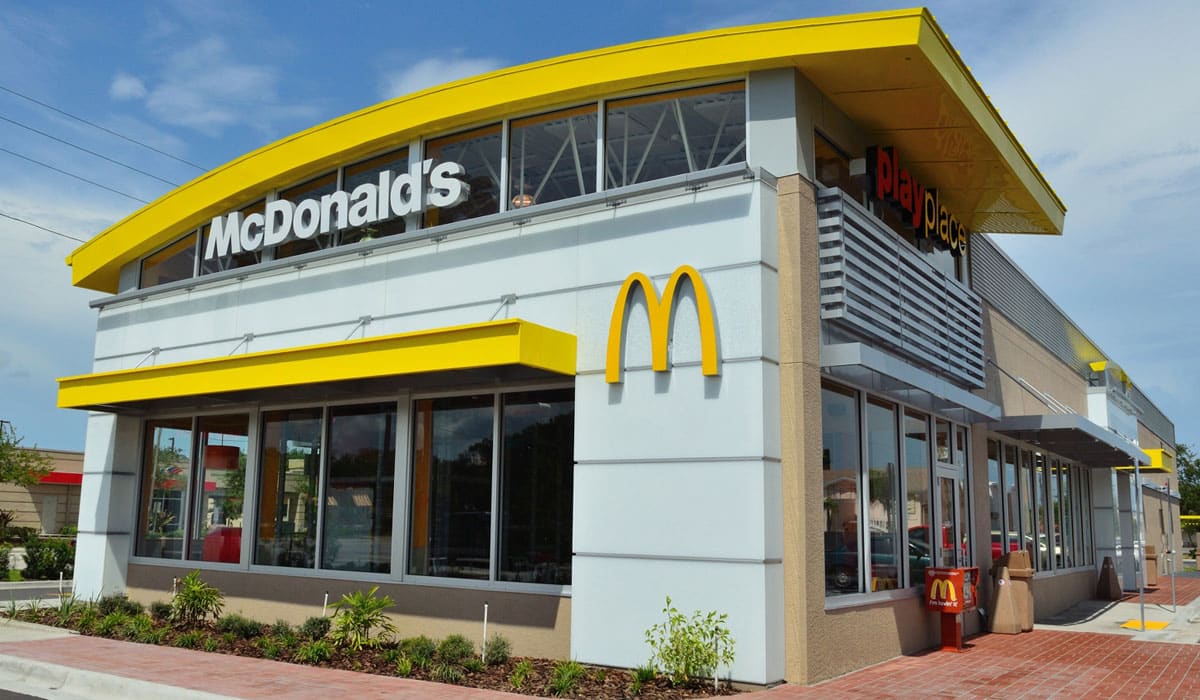McDonald’s announced Thursday a commitment to improve leadership diversity in the next five years, with executive compensation tied to achieving those goals.
In a letter to employees, CEO Chris Kempczinski said McDonald’s wants to increase women in leadership from 37 percent to 45 percent by the end of 2025 and to reach gender parity by the end of 2030. The fast-food chain is also aiming to increase representation of minorities in leadership roles from 29 percent to 35 percent by 2025.
According to data from 2018, McDonald’s appears to be ahead of peers in the food and drink industry. At that time, 10 percent of McDonald’s executives and senior level managers were Black compared to 7 percent industrywide. Additionally, 15 percent of leadership was Hispanic compared to 9 percent in the industry, and 8 percent was Asian as opposed to 4 percent at other food and drink establishments. However, McDonald’s was lower when it came to women; 32 percent of leadership was female compared to 35 percent industrywide.
“Let me be clear: Our DEI [Diversity, Equity, and Inclusion] journey does not – and cannot – exist independently. It is deeply rooted in the values that make McDonald’s the thriving, vibrant brand it is today,” Kempczinski said in the letter. “Our values underpin our success and are at the very heart of our Accelerating the Arches business strategy and how we operate across all three legs of the stool.”
To hold McDonald’s executives accountable, the chain is adding annual diversity targets to its compensation incentive metrics. This extends to most senior leadership, including Kempczinski, CFO Kevin Ozan, McDonald’s USA President Joe Erlinger, and International President Ian Borden.
Executives will be measured by how they champion the company’s core values, improve diversity representation for women and underrepresented groups, and create a strong culture of inclusion among employees.
This accounts for 15 percent of the incentive payout. The remaining 85 percent is tied to operating income growth and systemwide sales growth.
“Since the day I stepped into the CEO role, I’ve said that actions are bigger than words. And because actions are even more powerful when they are underpinned by transparency, we’re sharing critical data on diversity, equity and inclusion at McDonald’s publicly, and will regularly update this data over time,” Kempczinski said.
In the wake of former CEO Steve Easterbrook’s firing in November 2019, Kempczinski has led an effort to shift McDonald’s internal culture, including the hire of Heidi Capozzi, leader of human resources, and Reggie Miller, leader of diversity, equity, and inclusion.
During the summer, McDonald’s established a global advisory council on diversity, equity, and inclusion with leaders across the world. Since that time, the chain has sought expertise from diverse voices to advise on long-term strategies, including a listening tour that consisted of leadership interviews and listening sessions across several markets.
“Few companies in the world have McDonald’s reach—we serve tens of millions of people a day and operate in nearly 40,000 communities and 120 countries and territories,” Miller said in a statement. “We believe we have the ability to use our scale to tackle big challenges facing our communities—both locally and globally—and recognize that McDonald’s has both a business and obligation and social responsibility to do our part to make our world more equitable.”
The news comes as McDonald’s has been hit with a handful of lawsuits regarding racial discrimination.
To begin 2020, two Dallas-based executives accused McDonald’s of consistently not promoting black leaders within the company. It also stated that racism became more prevalent when Easterbrook and other new executives joined the company in 2015. Later in the year, dozens of Black former franchisees filed a complaint saying that McDonald’s forced them into unprofitable locations. Two current franchisees, James and Darrell Byrd, and longtime operator and former MLB player Herb Washington filed lawsuits citing similar discriminatory issues.
McDonald’s categorically denied each of the allegations in the lawsuits.








